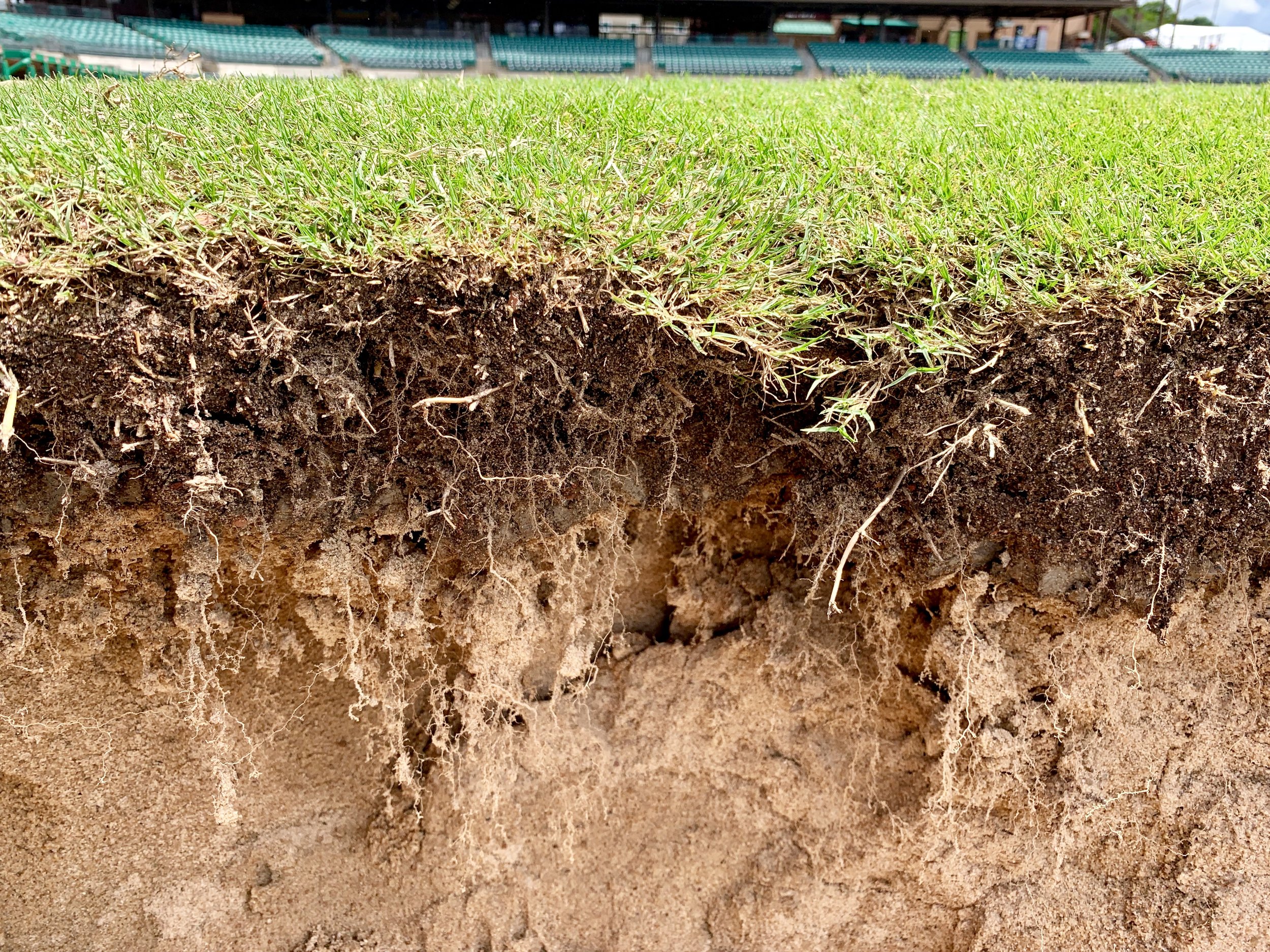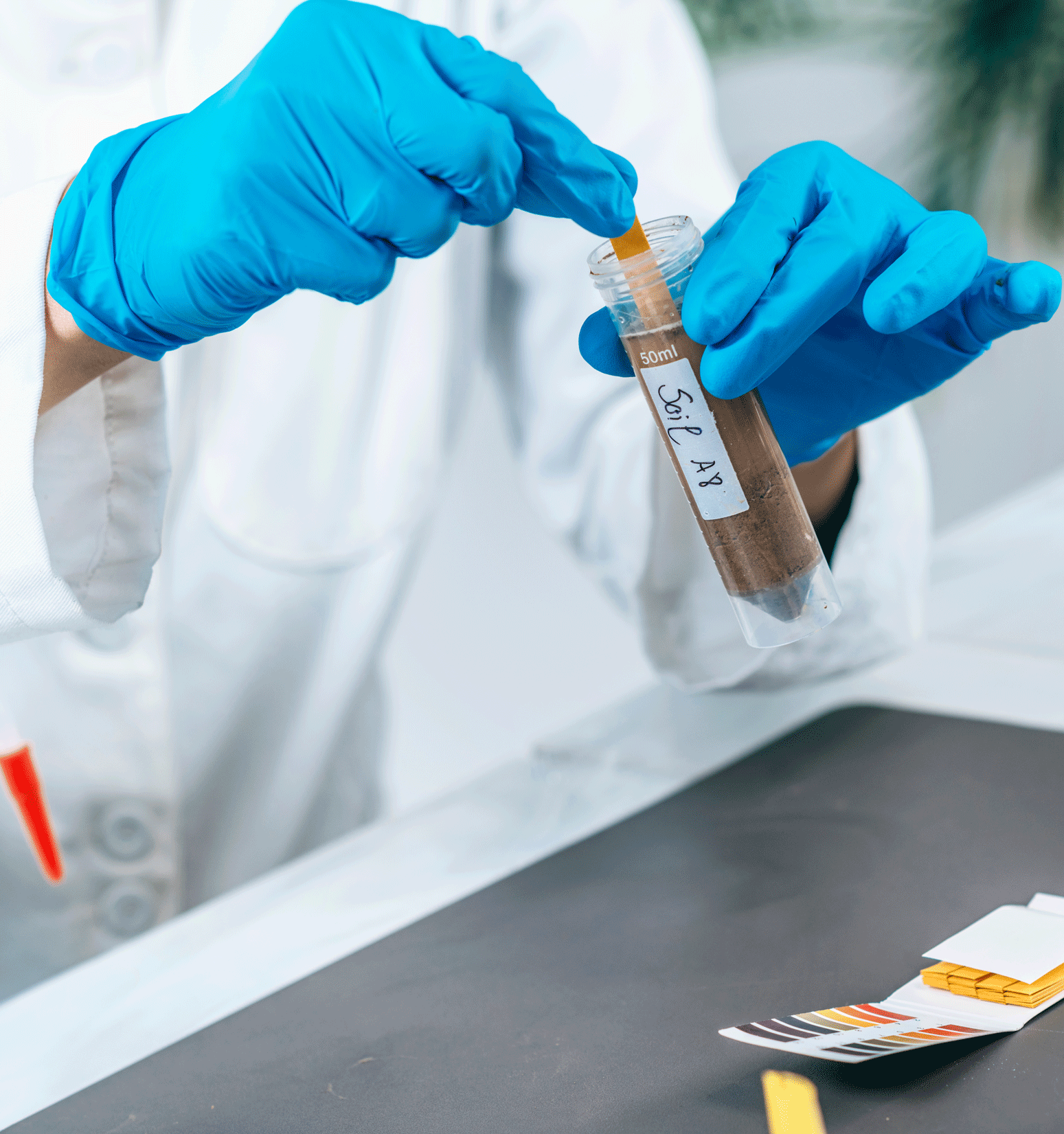Soil Lab Testing & pH Modifiers
A thriving lawn starts from the ground up, literally. Healthy soil provides the foundation for strong, green grass, and the best way to ensure optimal soil conditions is through precise soil testing. That’s why, at Natural State Horticare, we’ve partnered with several University labs to provide professional soil analysis for every client. This scientific approach enables us to monitor progress and deliver customized, data-driven solutions tailored to your lawn’s specific needs.
Every new client will receive a FREE soil test.
Lime takes a minimum of 3 months to even begin working and up to 2 years before its full effects on pH can be observed via testing. It can take several years to overcome acidic conditions.
-
ONLY 2.6% had an Ideal pH
81% Had Acidic Soil
16.4% Had Alkaline Soil
30% Had a Potassium Deficiency
42% Had Low Organic Matter (strong correlation to lenght of service and age of property)
-
Round 10 of our lawn program is tailored to your specific soil type.
Clients with acidic soil will receive lime to raise the pH.
Clients with ideal pH will receive a pelitized granular compost affectionately known as Superfood.
Clients with alkaline soil will receive granular sulfur to lower the pH.
-
The 2025 test results indicated that 30% of our clients were deficient in Potassium.
To further demonstrate our commitment to providing the best science-backed program possible, we've increased Potassium inputs by 3X in 2026 at NO ADDITIONAL cost.
-
Soil health determines how well your lawn can absorb essential nutrients. Without the right balance of pH, organic matter, and nutrients, your grass may struggle, leading to weak growth, discoloration, and increased susceptibility to weeds and disease.
When interpreting soil tests, we focus on 4 key factors:
pH Balance is a representation of your soil’s acidity or alkalinity. pH plays a significant role in the soil's ability to absorb nutrients.
Nutrient Deficiencies in key macronutrients (Nitrogen, Phosphorus, Potassium).
CEC (cation exchange capacity) is an indication of the soil’s ability to hold or absorb cations, including many nutrient cations applied as fertilizer. The higher the CEC, the more nutrients the soil can hold.
OM% (organic matter percentage) is the organic component of soil consisting of three primary components: small (fresh) plant residues with small living soil organisms, decomposing (active) organic matter, and stable organic matter (humus).
By testing the soil at the end of each season, we track its progress over time and fine-tune our approach to maximize your lawn's health.
-
Macronutrients
Needed in larger quantities, which are divided into two groups:
Primary:
Nitrogen (N), Phosphorus (P), and Potassium (K). Required in the highest concentrations, often the first to be depleted in the soil. Fertilization is always needed for one or more nutrients.
Secondary:
Calcium (Ca), and Magnesium (Mg). Although essential, these are usually needed in lower quantities than primary macronutrients. Usually sufficient in soil, so fertilization is not always needed
Micronutrients
Essential for plant development and growth but are needed only in trace amounts. These include Boron (B), Copper (Cu), Iron (Fe), Manganese (Mn), and Zinc (Zn). Despite their low required quantities, they are vital for healthy plant growth.
pH Modifiers
pH recommendations ensure a balanced soil environment for optimal crop growth. pH modifiers adjust levels up or down as needed, improving nutrient availability and absorption.
Your Test Might Recommend…
pH Adjustments (lime)
Organic Superfood Jumpstart
Irrigation Optimization




